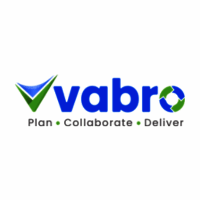Description

Openkoda

Shivit ERP
Comprehensive Overview: Openkoda vs Shivit ERP
Overview of Openkoda and Shivit ERP
a) Primary Functions and Target Markets
Openkoda:
-
Primary Functions: Openkoda is an open-source platform geared towards rapid application development. It offers tools for building business applications, with a strong emphasis on customization, integration, and modularity. The platform provides features like user management, data management, workflow automation, and reporting tools. It also focuses on scalability and flexibility to suit different business needs.
-
Target Markets: Openkoda primarily targets small to medium-sized enterprises (SMEs) and developers who need a versatile framework for creating custom business solutions. It's particularly attractive for businesses that require specific configurations and integrations that off-the-shelf software cannot offer.
Shivit ERP:
-
Primary Functions: Shivit ERP is a comprehensive enterprise resource planning solution designed to streamline business processes across various departments, including finance, human resources, supply chain management, inventory, and sales. It focuses heavily on automation, data analytics, and providing a unified platform for business operations.
-
Target Markets: Shivit ERP targets a wide range of industries, including manufacturing, retail, and services. It is suitable for medium to large enterprises looking for an integrated approach to managing their operations efficiently.
b) Market Share and User Base
Openkoda:
-
Market Share: As an open-source platform, Openkoda is more of a niche product compared to mainstream ERP systems. Its market share is relatively small, as it primarily attracts businesses looking for tailored solutions that are not adequately served by larger commercial ERP providers.
-
User Base: The user base of Openkoda is steadily growing among SMEs and the developer community interested in open-source solutions. Its modularity and flexibility make it appealing for organizations with specific needs.
Shivit ERP:
-
Market Share: Shivit ERP may have a more substantial presence in the ERP market compared to niche solutions like Openkoda but still competes with major ERP vendors like SAP, Oracle, and Microsoft. Its market share can be considered modest within the competitive ERP landscape.
-
User Base: Shivit ERP has a diverse user base, spanning different industries and geographic regions. Companies that have adopted the system often do so for its comprehensive feature set and ability to support large-scale operations.
c) Key Differentiating Factors
Openkoda vs. Shivit ERP:
-
Customization and Flexibility: Openkoda offers significant flexibility and customization options due to its open-source nature. It allows developers to tailor the platform extensively to meet specific business requirements, which is a key advantage over more rigid ERP systems like Shivit.
-
Ease of Integration: Openkoda’s design facilitates easy integration with other software and systems, making it ideal for organizations with complex IT ecosystems. Shivit ERP, while integrated, may still require more effort or third-party tools for custom integrations.
-
Scalability: Shivit ERP is typically more suited for scalability in very large enterprises with complex needs across multiple departments and locations. Openkoda, on the other hand, is highly scalable for small to medium enterprises, offering a growth pathway as businesses expand.
-
Cost: Openkoda, being open-source, might lower initial costs compared to proprietary ERP systems. Shivit ERP may involve licensing, implementation, and ongoing maintenance costs that could be higher, especially for large enterprises.
-
Industry Focus: While both solutions can serve a variety of industries, Shivit ERP's focus is more aligned with industries requiring robust supply chain and resource management capabilities, whereas Openkoda appeals to those requiring unique, application-specific solutions.
In summary, Openkoda and Shivit ERP cater to different segments and have distinct strengths. Openkoda excels in customization and integration for smaller, agile companies, while Shivit ERP is better suited for larger enterprises seeking a comprehensive, all-in-one management solution.
Contact Info

Year founded :
Not Available
Not Available
Not Available
Not Available
Not Available

Year founded :
Not Available
Not Available
Not Available
Not Available
Not Available
Feature Similarity Breakdown: Openkoda, Shivit ERP
When comparing Openkoda and Shivit ERP, it’s important to analyze several aspects, including their core features, user interfaces, and any unique offerings. Here’s a breakdown of these elements:
a) Core Features in Common
Both Openkoda and Shivit ERP are designed to support business operations by integrating various processes and providing a seamless workflow. Common core features usually include:
-
Financial Management: Both systems typically offer robust financial accounting, including invoicing, budgeting, and expense tracking.
-
Inventory Management: These systems often have features for managing inventory, tracking stock levels, and handling orders.
-
Sales and CRM: Both platforms likely feature customer relationship management tools, allowing businesses to track leads, manage contacts, and automate sales workflows.
-
Human Resources: Common HR functionalities include employee records management, payroll, leave tracking, and performance evaluation.
-
Project Management: Both may include functionalities for planning, executing, and monitoring projects, including task management and Gantt charts.
-
Reporting and Analytics: They generally provide tools to generate reports and gain insights into business performance, often with customizable dashboards.
b) User Interface Comparison
Openkoda:
- Openkoda often emphasizes a more developer-friendly approach since it involves open-source components, making it highly customizable.
- The UI tends to cater to users who are comfortable with technical adjustments and seek flexibility.
- May incorporate dashboards that allow users to configure data visualization based on their needs.
Shivit ERP:
- Shivit ERP tends to focus on user-friendliness, often targeting small to medium-sized enterprises with more straightforward, intuitive interfaces.
- Typically, it has a more polished and simplified UI that minimizes the learning curve for new users.
- Often includes drag-and-drop functionalities and easy-to-navigate menus to enhance user experience.
c) Unique Features
Openkoda:
- Open Source Flexibility: Openkoda is open source, providing the opportunity to customize and extend its functionalities according to specific business needs.
- Community-Driven Development: This platform can benefit from a community-driven ecosystem where users and developers contribute to improving and expanding features.
Shivit ERP:
- Industry-Specific Solutions: Shivit ERP might offer industry-specific modules tailored to particular sectors like manufacturing, retail, or construction.
- Quick Implementation: Often marketed with quick deployment options, which can be advantageous for businesses needing rapid integration.
- Predefined Workflows: Offers predefined business processes and templates, making it easier for businesses to start managing operations out-of-the-box without too much configuration.
Both systems provide valuable tools for managing business operations, but the choice between them would usually depend on specific business needs, technical resources available, and desired level of customization.
Features

User-Friendly Interface
Robust Security
Seamless Integration
Efficient Collaboration

Comprehensive Reporting
Customer Relationship Management (CRM)
Inventory Management
User-Friendly Interface
Best Fit Use Cases: Openkoda, Shivit ERP
Openkoda and Shivit ERP are different tools that cater to specific business needs and industries. Here's a breakdown of their best-fit use cases:
Openkoda
a) For what types of businesses or projects is Openkoda the best choice?
-
Custom Web Application Development: Openkoda is ideal for businesses looking to create custom web applications with specific needs. Its modular framework allows for flexibility and scalability.
-
Startups and Small Businesses: Companies that require a cost-effective solution to rapidly develop and deploy applications can benefit from Openkoda. Its open-source nature reduces costs associated with licensing.
-
Agile Development Environments: Organizations that follow agile methodologies will find Openkoda beneficial due to its adaptability and ease of iteration, allowing teams to quickly pivot and implement feedback.
Shivit ERP
b) In what scenarios would Shivit ERP be the preferred option?
-
Manufacturing Industry: Shivit ERP is well-suited for manufacturing businesses due to its comprehensive modules that manage supply chain, production planning, inventory, and quality control.
-
Medium to Large Enterprises: Larger businesses can leverage Shivit ERP’s robust features to manage complex operations. Its enterprise-level capabilities provide comprehensive solutions for financial management, HR, procurement, and more.
-
Businesses Seeking Integrated Solutions: Companies that want to manage their entire operation within a single system (from CRM to finance to HR) would find Shivit ERP a good fit due to its broad scope of integrated functionalities.
Catering to Industry Verticals and Company Sizes
-
Openkoda is versatile for diverse sectors due to its customizable nature, making it adaptable for technology-driven industries, digital agencies, or any enterprise requiring unique software solutions. Small to medium businesses favor it because it enables them to scale as they grow without the overhead of traditional enterprise software.
-
Shivit ERP, by contrast, is industry-specific in its design with modules tailored to manufacturing, wholesale distribution, and similar industries. Its scalability supports medium to large enterprises, making it suitable for companies with multiple departments and complex supply chains, seeking a unified platform to drive efficiencies and comprehensive reporting systems.
Both products answer different needs: Openkoda provides a more developer-centric, customizable environment, while Shivit ERP offers a structured, integrative approach for comprehensive business management, emphasizing operational coherence and industry-specific features.
Pricing

Pricing Not Available

Pricing Not Available
Metrics History
Metrics History
Comparing undefined across companies
Conclusion & Final Verdict: Openkoda vs Shivit ERP
To provide a comprehensive conclusion and final verdict on Openkoda and Shivit ERP, let's evaluate each product based on various critical factors, summarize their pros and cons, and offer tailored recommendations for potential users.
Conclusion and Final Verdict
a) Considering all factors, which product offers the best overall value?
Determining the best overall value between Openkoda and Shivit ERP depends heavily on the specific needs and circumstances of the user or business. However, based on general factors such as scalability, cost-effectiveness, ease of use, customer support, and feature offerings, here's a breakdown:
-
Openkoda: Generally provides robust customization capabilities and is well-suited for businesses that require a highly flexible ERP solution. Its open-source nature can result in lower costs over time if the organization has the technical capability to manage and customize the system internally.
-
Shivit ERP: Typically offers a more comprehensive out-of-the-box solution with strong industry partnerships. It may provide superior support and ease of integration for businesses seeking a plug-and-play experience without extensive internal IT staff engagement.
In terms of overall value, Shivit ERP may edge out slightly for companies looking for simplicity and comprehensive support right from deployment, while Openkoda might be more valuable for organizations with complex processes desiring extensive customization and lower long-term licensing costs.
b) Pros and Cons of Choosing Each Product
Openkoda:
- Pros:
- Highly customizable due to its open-source nature.
- Potentially lower long-term costs, especially for organizations with capable IT teams.
- Broad community support and flexibility in integrating various modules.
- Cons:
- Can incur higher initial setup and configuration costs.
- Potentially greater demand for in-house technical skills.
- May lack some high-level support options available with proprietary solutions.
Shivit ERP:
-
Pros:
- User-friendly interface with easy deployment.
- Extensive customer support and training resources.
- Often includes comprehensive, industry-specific features and integrations.
-
Cons:
- Higher initial and ongoing licensing costs.
- Less flexibility in terms of custom modifications.
- Potential vendor lock-in risks.
c) Recommendations for Users Trying to Decide Between Openkoda and Shivit ERP
-
Assess Business Needs: Analyze the specific needs and capabilities of your organization. If customization and flexibility are paramount, and you have a strong technical team, Openkoda might be the right choice. However, if you value ease of use and customer support, consider Shivit ERP.
-
Consider Total Cost of Ownership (TCO): Weigh the initial setup costs against long-term expenses for both solutions. Openkoda's initial customization might cost more but could save on licensing fees over time.
-
Evaluate Vendor Support: For organizations with limited IT capacity, Shivit ERP's comprehensive support and ease of use might outweigh the benefits of Openkoda's customizability.
-
Future Scalability: Ensure that the chosen solution can scale with your business. Openkoda, being open-source, might offer more scalability options at a lower cost compared to Shivit ERP.
Ultimately, the best ERP solution will align with the specific strategic goals and functional requirements of your organization, making it essential to perform due diligence before making a decision.
Add to compare
Add similar companies



